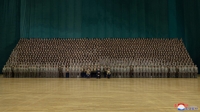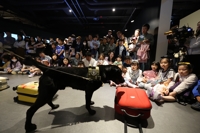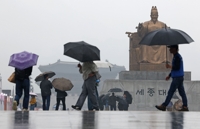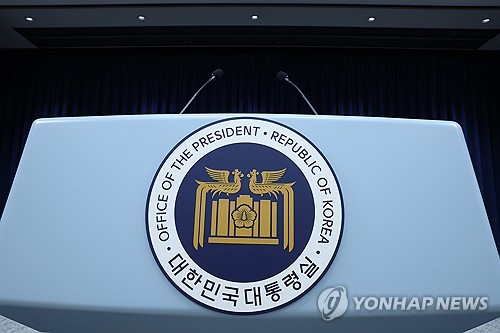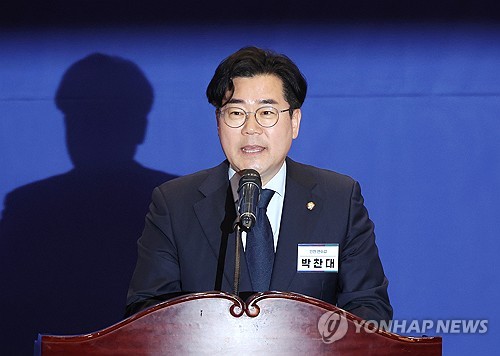(LEAD) ITC backs LG Energy in trade secret dispute, issues 10-year import ban on SK
(ATTN: UPDATES with company response, details throughout; ADDS byline, photo)
By Kim Eun-jung
WASHINGTON/SEOUL, Feb. 10 (Yonhap) -- A U.S. trade panel on Wednesday ruled in favor of South Korean battery maker LG Energy Solution Ltd. in a trade secret case and issued a 10-year import ban on some lithium-ion battery products by SK Innovation Co.
The U.S. International Trade Commission (ITC) affirmed a preliminary ruling delivered in February 2020 to support LG's claims that SK used stolen trade secrets to develop its electric vehicle (EV) batteries.
The ITC issued "a limited exclusion order" for 10 years to ban import of some lithium-ion batteries and its components by SK Innovation, but permitted shipment of components for domestic production of its clients, including Ford Motor, Volkswagen and Kia, considering "public interests."
The order permits SK Innovation to import components for domestic production of lithium-ion battery products for Ford Motor for four years and for Volkswagen for two years to allow them to transition to new domestic suppliers, the ITC said in the ruling.
It also allows SK Innovation to import articles for the repair and replacement of EV batteries for Kia vehicles that had been sold to U.S. customers.
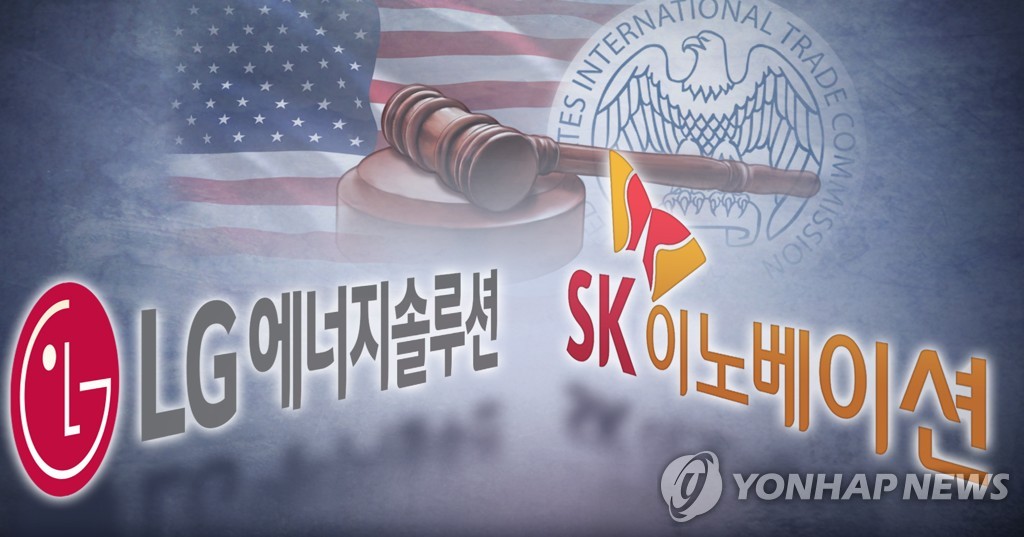
This file image depicts the legal dispute between LG Energy Solution Ltd. and SK Innovation Co. (Yonhap)
The final ruling deals a heavy blow to SK Innovation's plan to grab a bigger chunk of the growing EV battery market with a new factory on U.S. soil but allowed it to avoid delivery failures to its clients.
SK Innovation has been building a factory in Georgia, to be completed by 2022, to provide EV batteries to Volkswagen and Ford and is building its second plant at the site. It has pledged to hire 2,600 people by 2024.
The commission's decision could jeopardize SK's promises to create American jobs and complicate U.S. President Joe Biden's push to expand EV adoption under his Green New Deal initiative.
The Biden administration has 60 days to review the ruling. Unless Biden vetoes the ruling, it becomes final.
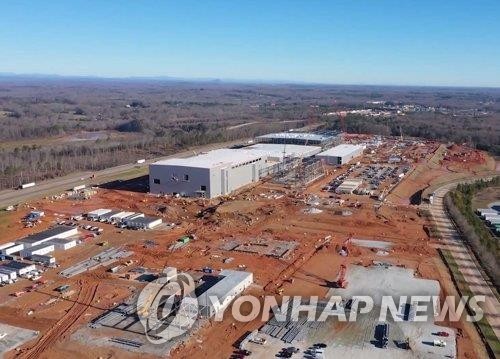
SK Innovation Co.'s electric vehicle battery plant under construction in the U.S. state of Georgia is seen in this photo provided by the company on Aug. 28, 2020. (PHOTO NOT FOR SALE) (Yonhap)
SK Innovation said it will continue efforts to prevent the ITC's ruling from disrupting its U.S. production plan by promoting the importance of its EV battery supply chain and jobs to be created at the Georgia plant during the presidential review.
"We will explore ways to protect our clients' interests during the presidential review period and afterwards," SK Innovation said in a press release.
LG Energy Solution, wholly owned by LG Chem Ltd., said the ITC's ruling acknowledged its claim that SK Innovation stole its trade secret related to rechargeable batteries and caused damage to the company.
The world's No. 2 EV battery maker supplies batteries to Tesla, General Motors, Volkswagen, Hyundai Motor and a number of other automakers. It already produces batteries in a plant in Michigan and is building another factory in Ohio to supply Utlium Cells, its battery joint venture with GM.
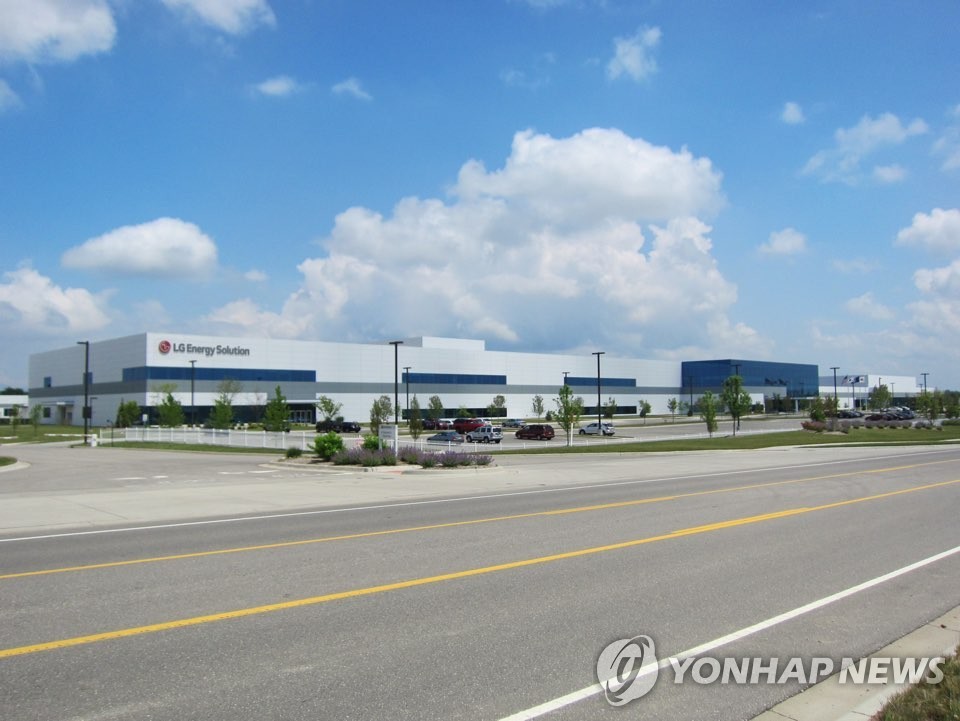
LG Energy Solution Ltd.'s electric vehicle battery plant in Michigan is seen in this photo provided by the subsidiary of LG Chem Ltd. on Jan. 27, 2021. (PHOTO NOT FOR SALE) (Yonhap)
LG Energy Solution urged SK Innovation to accept the final decision and come to the negotiating table with a compromise that can satisfy its shareholders and investors.
"If (SK Innovation) does not provide a compromise that corresponds to misappropriation of the trade secret and that can satisfy our shareholders and investors, we will sternly engage in ongoing legal proceedings at home and abroad," LG Energy Solution said in a statement.
LG and SK are mired in tit-for-tat battery patent infringement disputes filed in the U.S. in 2019, with decisions expected later this year.
LG could take advantage of its ITC ruling at the Federal District Court in Delaware, which can order the plaintiff to pay compensation for actual damages and higher punitive damages.
The two Korean companies have faced growing pressure from South Korean policymakers and politicians in Georgia to resolve the prolonged legal issues, but they have failed to reach a compromise due to a big gap on the settlement amount.
According to industry sources, LG demanded nearly 3 trillion won (US$2.7 billion) in compensation, but SK offered less than 1 trillion won.
ejkim@yna.co.kr
(END)
-
 BTS' Jungkook's 'Seven' chosen as hottest hit outside U.S.
BTS' Jungkook's 'Seven' chosen as hottest hit outside U.S. -
 From pastime to academic discipline: Exhibition spotlights evolution of Korean embroidery
From pastime to academic discipline: Exhibition spotlights evolution of Korean embroidery -
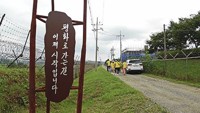 Gov't to open 10 trails near DMZ for visitors next month
Gov't to open 10 trails near DMZ for visitors next month -
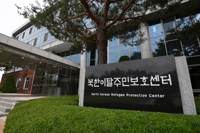 Number of N. Korean defectors entering S. Korea reaches 43 in Q1
Number of N. Korean defectors entering S. Korea reaches 43 in Q1 -
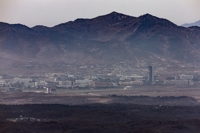 N. Korea dismantles S. Korean building near shuttered Kaesong complex
N. Korea dismantles S. Korean building near shuttered Kaesong complex
-
 From pastime to academic discipline: Exhibition spotlights evolution of Korean embroidery
From pastime to academic discipline: Exhibition spotlights evolution of Korean embroidery -
 BTS' Jungkook's 'Seven' chosen as hottest hit outside U.S.
BTS' Jungkook's 'Seven' chosen as hottest hit outside U.S. -
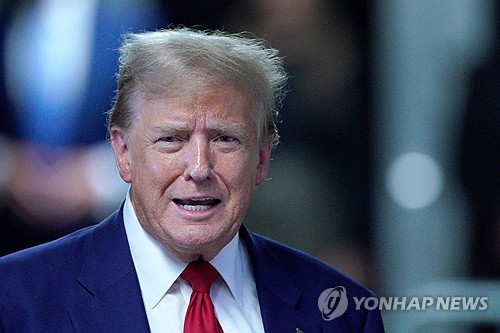 Trump suggests U.S. could withdraw its troops if S. Korea does not contribute more to support USFK: TIME
Trump suggests U.S. could withdraw its troops if S. Korea does not contribute more to support USFK: TIME -
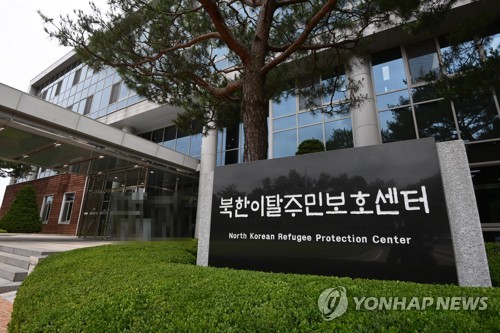 Number of N. Korean defectors entering S. Korea reaches 43 in Q1
Number of N. Korean defectors entering S. Korea reaches 43 in Q1 -
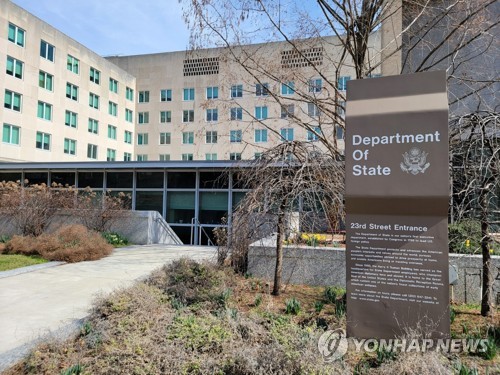 (Yonhap Interview) U.S. will do 'all' it can to back S. Korea in case of China's economic coercion: official
(Yonhap Interview) U.S. will do 'all' it can to back S. Korea in case of China's economic coercion: official
-
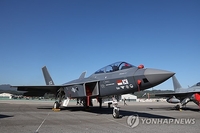 Indonesia proposes cutting payment for joint fighter jet project with S. Korea to one-third
Indonesia proposes cutting payment for joint fighter jet project with S. Korea to one-third -
 S. Korea's working-age population to dip nearly 10 mln by 2044 amid low births
S. Korea's working-age population to dip nearly 10 mln by 2044 amid low births -
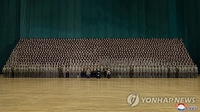 N.K. leader calls on public security officials to 'firmly defend' state unity
N.K. leader calls on public security officials to 'firmly defend' state unity -
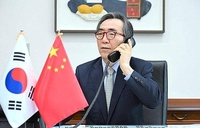 S. Korea, China in final stage of talks on FM Cho's visit to Beijing
S. Korea, China in final stage of talks on FM Cho's visit to Beijing -
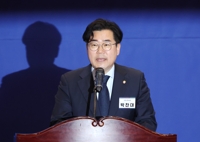 DP to propose cash handouts as 1st bill of new National Assembly
DP to propose cash handouts as 1st bill of new National Assembly
















